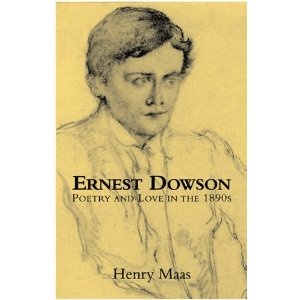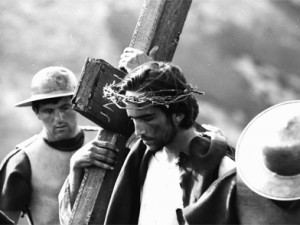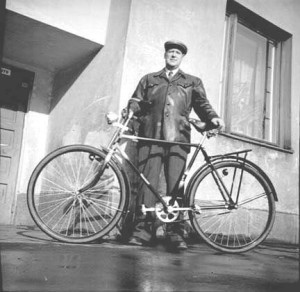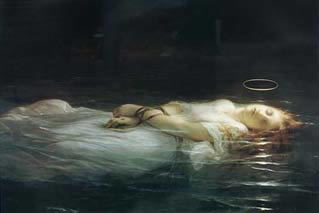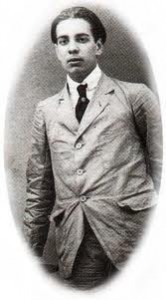Poetry in Translation (CLXXXVIII): Tomaž ŠALAMUN, (b. 1941) Slovenian Poet, “Thought ‘64”, “Gând ‘64”
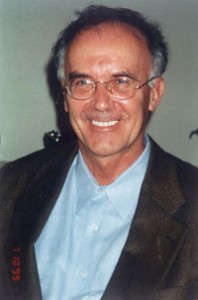
Tomaz SALAMUN,
Poet, Slovenia
Thought ‘64 (Duma ‘64)
Tomaž ŠALAMUN, (b. 1941)
Screwed by the Absolute,
gorged with virgins and other deadly wounded,
I love you, O my fellow-creatures, you who are humble godfather’s flash of wit;
I love you, O you complete personalities of sweet observations; in my spirit, mercy has moved.
O you, owners of mental grief,
O you, fawning intellectuals with small sweaty hands,
O you, logicians – vegetarians – with a diopter of minus fifteen,
O you, rectors with muzzles on your snouts,
O you, ideologists with your prostitute ideologies,
O you, academicians who chew gingerbread from Skofja Loka as well as punctuations,
O you, mummies who applaud passions and sufferings in an academic way,
You, Pascals who are trying hard and you Bachs who have succeeded,
O you, lyricists who are drying up with delight,
O you, gardeners – the rationalists and swallows,
O Thou, Socialism a la Louis XIV, or with idea of how to prevent cruelty to animals,
O you, hundred thirty five constitutional bodies, or what to do with the carrion cat in order not
to have it stink,
O you, revolution of all the people’s masses, or where is the sanatorium to cure us of impotence.
I have walked throughout our country and got an ulcer;
country of Zimpermanns and of their pimply lady-adorers,
country of servants, myths and pedagogy;
O you, steady Slovenians, you, objects of history who caught a cold.
* * * * * * * * * *
Tomaž Šalamun (b. 1941, Zagreb)
Poet Sloven
Gând’64
Răvăşit de Absolut,
Răsfăţat de fecioare şi trupuri muribunde,
O, semenii mei, vă ador, voi care sunteţi zvâcnirea sufletului neprihănit de haiduc
O, voi, personajii absolute ale observaţiilor rafinate: în fiinţa mea, s-a născut iertarea
O, voi, deţinători a suferinţei psihologice,
O voi, trepăduşi intelectuali cu palme transpirate
O, voi, profesori vegetarieni de Logică, cu dioptrii de minus cincisprezece
O, voi, rectori cu botniţă,
O, voi, propagandişti cu ideologia voastră prostituată
O, voi, academicieni, mestecând turta dulce din piaţă, laolaltă cu punctuaţia,
O, voi, mumiilor ce aplaudaţi, într-un stil academic, de-a valma, pasiunile şi durerile,
Voi, urmaşii lui Pascal, care vă scremeţi şi urmaşi ai lui Bach, care aţi parvenit
O, voi poeţi lirici care vă ofiliţi de plăcere
Voi, grădinari care îngrădesc zborul rândunelelor
Voi, Socialisti în stil Bourbon, obsedaţi de prevenţia cruzimii animalelor
O voi, comisari a celor o sută trei zeci si cinci de comisii constituţionale, desemnate să decidă solutia optimă de a dispune de hoitul pisicii, ca să nu pută.
O, tu, revoluţie a maselor populare, în căutarea spitalului de prevenţie a impotenţei
Am preumblat toată tara, ca să mă aleg cu un ulcer;
Ţară de Zimpermanni adoraţi de codoaşe
ţară de servitori, mituri şi pedagogie,
O, voi, cetăţeni de nădejde ai Sloveniei, voi, obiect al istoriei, pe care l-a picnit o răceală.
(Rendered in Romanian by Constantin ROMAN
© 2013 Copyright Constantin ROMAN)

Tomaz Salamun – Poems
SHORT BIO NOTE:
Tomaž Šalamun is a Slovenian poet, born in 1941 in Croatia, and raised in Koper, Slovenia.
He attended the high school in Koper, where he gained his interest in philology.
In 1960, Šalamun enrolled at the University of Ljubljana, to study art history and history. Four years later, in 1964, as editor of a literary magazine “Perspektive”, he published his iconoclastic poem, Duma ’64 (Thought ’64). This brought the ire of the Tito regime, which banned the publication of “Perspektive”. Šalamun was arrested, as one of the Communist hardliners, Ivan Maček Matija, recognized himself in the (dead) cat from the poem (the name Maček is cat in English). Consequently, Šalamun spent five days in jail only to come out something of a hero. In spite of this, the young Tomaž refrained from including the controversial poem in his first poetry book, which appeared in 1966 in a samizdat edition: thiswas replete with absurdist irreverence, playfulness and abandon.
Šalamun had several collections of poetry published in English, including The Selected Poems of Tomaž Šalamun (Ecco Press, 1998); The Shepherd, the Hunter (Pedernal, 1992); The Four Questions of Melancholy (White Pine, 1997); Feast (Harcourt, 2000), “Poker” (Ugly Duckling Presse), “Row!” (Arc Publications), “The Book for My Brother” (Harcourt), “Woods and Chalices” (Harcourt), and “There’s the Hand and There’s the Arid Chair” (Counterpath, 2009).
He has won a Pushcart Prize, as well as the Slovenia’s Prešeren Fund Award and Jenko Prize. Šalamun and his German translator, Fabjan Hafner, were awarded the European Prize for Poetry by the German city of Muenster. In 2004, he was the recipient of Romania’s Ovid Festival Prize.



